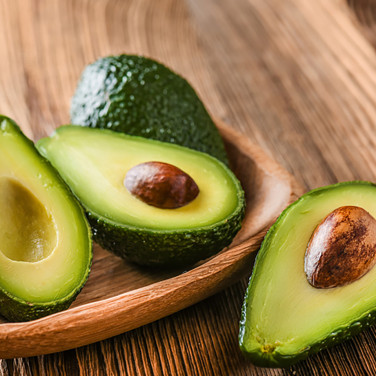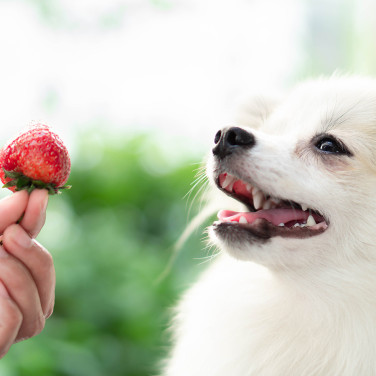FOOD
Can Dogs Eat Soybeans - Health Benefits and Risks of Soybeans for Dogs
페이지 정보
본문


Can dogs eat soybeans? HMM!
Soybeans, a protein-rich substitute with a myriad of health benefits, may seem like a good option for dogs. However, while dogs can eat soybeans, it's important to exercise caution due to risk of bloating and other digestive symptoms. Edamame beans, a type of immature soybeans, offer some health benefits and can be given to dogs in small quantities. Soy protein is a common allergy in dogs and can cause a few problems. While soybeans are considered safe to feed your pet in moderation, we would recommend using caution and consulting with your vet if your pet can benefit from its nutritional content. Ultimately, maintaining a balanced and healthy diet is crucial for your dog's well-being.
Nutritional facts of soybeans for dogs

Soy beans are nutrient-rich, containing manganese, omega 3 and 6 fatty acids, iron, phosphorous, copper, potassium, and magnesium. The nutritional content in soy beans can help improve their immune system, coat shine, and among other benefits. While meat should be the primary protein source for dogs, soybeans can be given as an additional protein source, providing valuable health benefits and nourishment.
Nutritional benefits of feeding soybeans to dogs
Dogs require various nutrients for their well-being, and soy beans offer a range of nutritional benefits you can consider for their diet.
-
Proteins
Soy beans contain proteins that can aid in muscle repair and overall tissue health in dogs, providing strength and assisting in recovery from injuries.
-
Potassium
Soy beans are rich in potassium, which can enhance nerve and muscle function in dogs, contributing to improved overall health.
-
Omega-3 and omega-6 fatty acids
These essential fatty acids found in soy beans promote brain development in puppies and possess anti-inflammatory properties that can alleviate arthritis, boost the dog's ability to fight cancer, and benefit the heart and kidneys.
-
Phosphorous
Soy beans are a source of phosphorous, a mineral vital for maintaining healthy teeth and bones, as well as regulating metabolism in dogs.
-
Manganese
The presence of manganese in soy beans activates enzymes necessary for various metabolic functions in dogs and supports joint health.
-
Copper
Soy beans contain copper, which plays a role in the production of red blood cells and aids in iron absorption. Additionally, it contributes to healthy skin and hair pigmentation in dogs.
-
Other Nutrients
Soy beans offer additional nutrients that make them a beneficial addition to a dog's diet, contributing to overall well-being.
While soy beans can be a superfood for dogs, it is important not to overfeed them. Feeding excessive amounts of soy beans can actually be a detriment to a dog's health.
How to safely serve soybeans to your dog

When it comes to safely serving soy beans to dogs, there are several important considerations to keep in mind. Firstly, it's crucial to be aware that some dogs may have allergies to soy. Therefore, before introducing soy beans into your dog's diet, it's advisable to check for any allergic reactions by starting with a small quantity and gradually increasing if no adverse effects occur.
Only purchase organic soybeans when considering adding these beans to your dog’s diet. Soak dried mature soybeans in cold water for about 24 hours before boiling to serve. It's essential to cook the soy beans thoroughly, as feeding them raw can expose dogs to potential bacteria and diseases that may upset their stomachs. It’s recommended to serve plain soy beans without any added spices, salt, or butter, as dogs' stomachs are not suited for seasonings and oils. Since soy beans may not be appealing to dogs due to their taste, mixing them with other foods can encourage consumption.
How much soybeans should I feed my dog?
It is recommended that all treats be within 10% of the recommended daily calorie intake. Soybeans are already included in a lot of commercial dog food products and you may not even know it. It is recommended to feed no more than a tablespoon for small breed dogs and feed upwards of 4 to 5 tablespoons of soybeans to large breed dogs.
Cautions to consider when feeding soybeans to dogs
Feeding your dog soy-based foods can lead to upset stomach symptoms. Soy is a common allergen for dogs, so it's important to test this first by feeding a very small amount. Some common soy options include tofu, edamame, miso, tempeh, soy milk, soy cheese, and soy yogurt. Soy can be found in various products like baked goods, cereals, peanut butter, and vegetable oil. Start with a small amount and gradually increase if there are no side effects. Consult your vet before making any dietary changes. Excessive consumption of soy may cause vomiting, diarrhea, hair loss, and other symptoms depending on the situation and allergic reaction.
High fiber content in soybeans
Due to the high fiber content in soybeans, dogs that eat too much soybeans can experience digestive symptoms such as constipation, gas, and stomach bloating.
Avoid feeding too much soybeans to spayed and neutered dogs
We recommend avoiding feeding too much soybeans to neutered or spayed dogs due to studies that suggest the production of estrogen from consuming too much soybeans. This can be harmful to your dog’s health and should be considered when adding soy to your dog’s diet.
Beware of food allergies
When introducing new food to your puppy, it is recommended to test for any potential allergies by giving a small portion and monitoring for allergic reactions. If your puppy displays any symptoms of intolerance, it is important to stop feeding and consult a veterinarian immediately.
Signs of an allergic reaction to look out for:
- Skin problems: hives, facial swelling, itchiness
- Digestive problems: vomiting and diarrhea
- Shortness of breath
Curious if you can give your dog other foods besides soybeans?

Does your dog also look up at you with those puppy dog eyes whenever you are snacking on something? You know foods like chocolates should not be shared with them but do you search the Internet every time if it’s okay to share a bite of whatever you are eating? The Buddydoc Food Dictionary provides information on hundreds of foods that we consume and informs you whether it is safe for them to consume and the nutritional benefits for your pet. If you're curious about other foods, try searching on Buddydoc!













